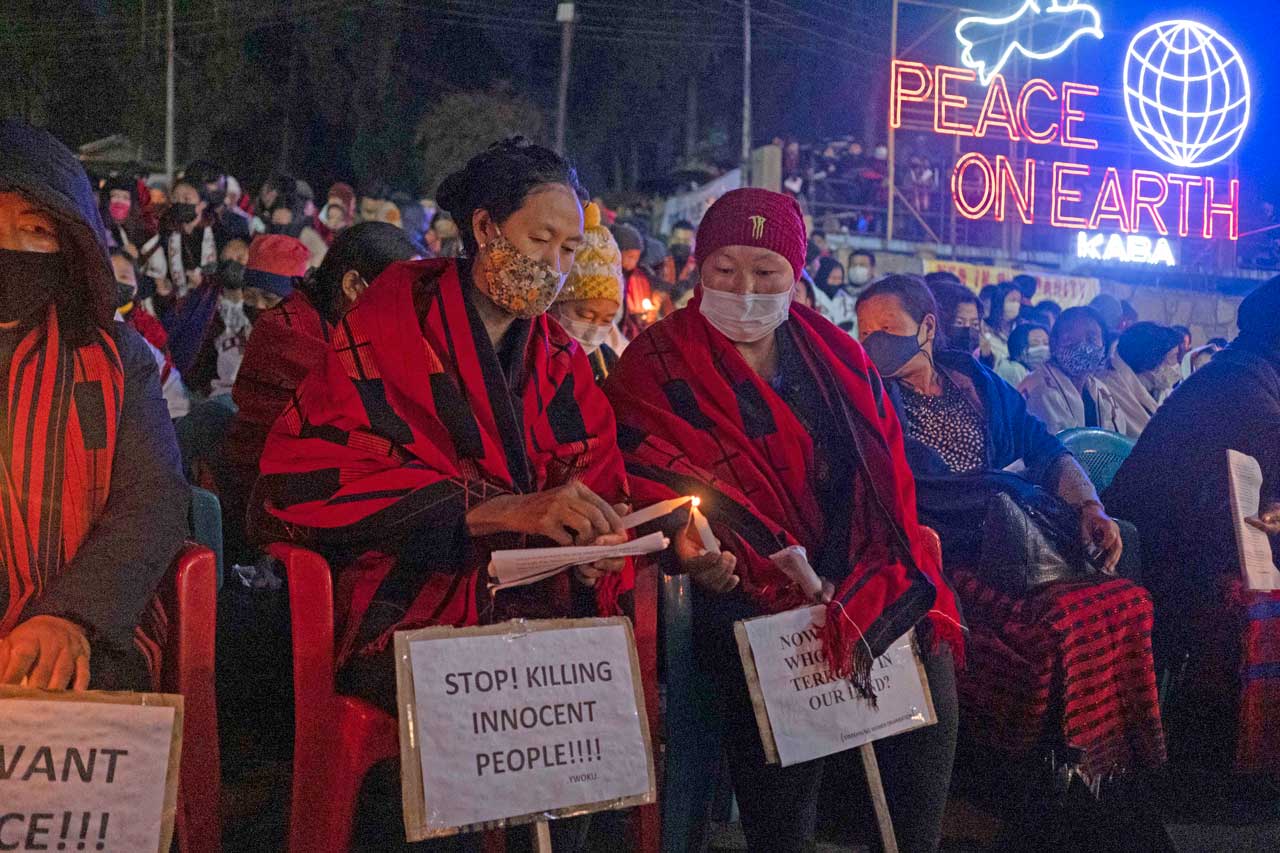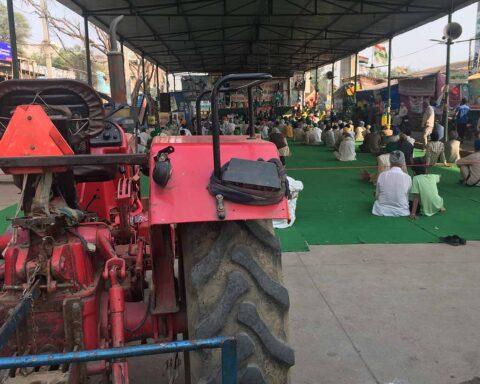The Oting incident in Mon district of Nagaland in December 2021 has reignited public sentiment and uproar against the imposition of the Armed Forces Special Powers Act (AFSPA), 1958 in some north-eastern states. The killing of 15 civilians by a special unit of the Army on December 4 in an alleged case of “mistaken identity” has drawn attention to the need to seriously rethink the continued imposition of the draconian law for maintaining public order and combatting insurgency.
Even before the tragedy, the relevance of the Act in recent times has been questioned by the people of the Northeast. The December 4 incident drew a sharp reaction from international human rights organisations like Human Rights Watch, demanding immediate repeal of the law.
Meanwhile, an investigation is underway. The report, which was slated to be out within a month, is still in the process of completion. The secretary-general of the Naga People’s Movement for Human Rights (NPMHR), Neingulo Krome, says, “When people are killed openly in broad daylight, why is the investigation taking so long? It’s a suo moto case, news reports and evidence are everywhere in the public domain. Several witness interviews have already been conducted.What more evidence do they require?” The NPMHR secretary-general insists that the inquiry report should be made public.
The demand for repeal of AFSPA echoed across Nagaland and elsewhere in the Northeast, yet within less than a month the Act was extended to all of Nagaland for another six months, followed by neighbouring Manipur, where it was further extended for a year.
The law and order situation cannot be used as justification for the imposition of AFSPA, asserts Krome. “Is there no violence in other Indian states?” he asks. He points out that there are numerous cases of violence in Delhi, Mumbai and elsewhere. “To implement AFSPA just because of some violence is a lame excuse,” says Krome. “It is not rational at all; we are being victimised.”
In Manipur, a notification by the state home department on December 8 conveying extension of AFSPA in the state, excluding the Imphal municipal areas, was published in the media on January 12. Taking cognisance of the notice, the Manipur State Human Rights Commission took up a suo moto case and issued notice to the state home department, seeking a response over the gap in dates of the notice issuance and its publication, the rationale for extension, and whether the state government has the de facto power to extend the disturbed areas status.
The chairperson of the state commission, Khaidem Mani, stated that the public has a right to know why the extension order came into the public domain after a month and two days. He demanded to know on what ground Manipur is a “disturbed” area.
He recalled that a police report submitted to the commission by the state Director General of Police, L.M. Khaute, around September-October last year mentioned that two persons had died, some were injured, and some arms and a few illegal items had been seized during the period of the report. Mani argued, “If this is the status report, how can you say Manipur is a disturbed state and needs AFSPA?”
The commission chairperson concedes the prevalence of militants and insurgent activities in Manipur. But he counters, “During the period of the police report, was there any insurgency activity? Any exchange of fire? Then why do we need AFSPA and for what?” Mani says that if a bomb is planted in some corner of the city or by the roadside, it is no reason for AFSPA to be enforced. “The concerned police station will do their job. You do not need AFSPA to defuse a bomb or file an FIR,” he says. Mani is of the opinion that the presence of a large number of paramilitary forces across the state provokes insurgent activities.
Krome makes a pertinent observation that those in authority, whether the governments in the states or at the Centre, and the military establishment want a blanket instrument of power
Questioning the imposition of AFSPA in a democratic country, the All-Arunachal Pradesh Students Union (AAPSU) leader, Tobom Dai, says that the Act is weakening the democratic functioning of the country rather than strengthening it. The student leader admitsto insurgency-related violence in Arunachal Pradesh. “But AFSPA did not improve the ground situation, the underground groups are still thriving and active,” he says. He points out that the law under the Indian Penal Code (IPC) has enough teeth to deal with law and order situations and insurgent activities in the country.
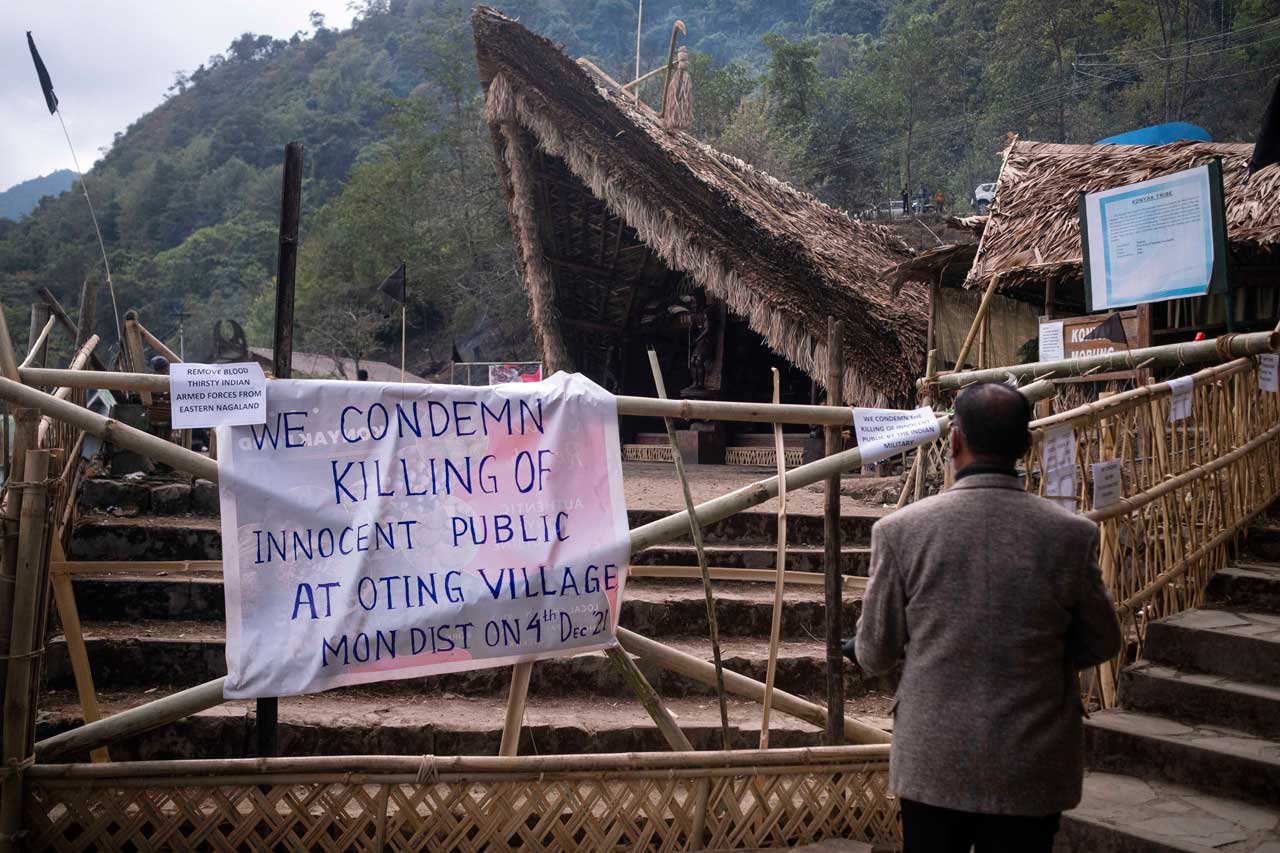
Krome makes a pertinent observation that those in authority, whether the governments in the state or at the Centre, and the military establishment want a blanket instrument of power so that they can have a free hand in the region. The rights activist notes that though a few people in Delhi understand the sentiments of the Nagas and of the Northeast people in general, in reality things don’t stack up well for the people of this region. “Politicians come and go. During their term in power, they do things for their own benefit and convenience,” says Krome, pointing out that there is a covert relationship between the military and the political establishments in Delhi.
Besides public demand in various forms such as protests and demonstrations for revoking AFSPA, several legal attempts have been made to seek justice for those who suffered at the hands of the security forces over the past six decades. Krome recalls NPMHR approaching several courts, including the Supreme Court, filing cases of extra judicial killings, torture, rape, assault, and property destruction. He also mentions how in 1997 the Supreme Court actually upheld the imposition of AFSPA. “The Court merely stated some dos and don’ts for the security forces,” he says.
After the sensational Oinam incident in 1987, in which insurgents belonging to the National Socialist Council of Nagalim (IM) attacked an Assam Rifles outpost, killing nine security personnel, and looted a huge cache of arms and ammunition, the security forces launched the brutal Operation Bluebird for recovering the stolen weaponry. But what actually followed under the cover of cordon and search operations was one of the most brutal violations of human rights in India. Protected by AFPSA, the security forces unleashed a reign of terror, with rape and killing of Naga people in 30 villages in Senapati district of Manipur.
Subsequently, acting upon a plea by Nandita Haksar, who was the counsel for the petitioners in the Oinam incident, the case was transferred by the Gauhati High Court to the Imphal Bench in 1991. The final hearing was conducted before the bench of Justices Sailendu Nath Phukan and W.A. Shishak in March 1992. But the two judges did not deliver any order and were subsequently transferred to other high courts in 1994. Justice Phukan retired as a Supreme Court judge in 2002. He passed away in 2018 in Jorhat.
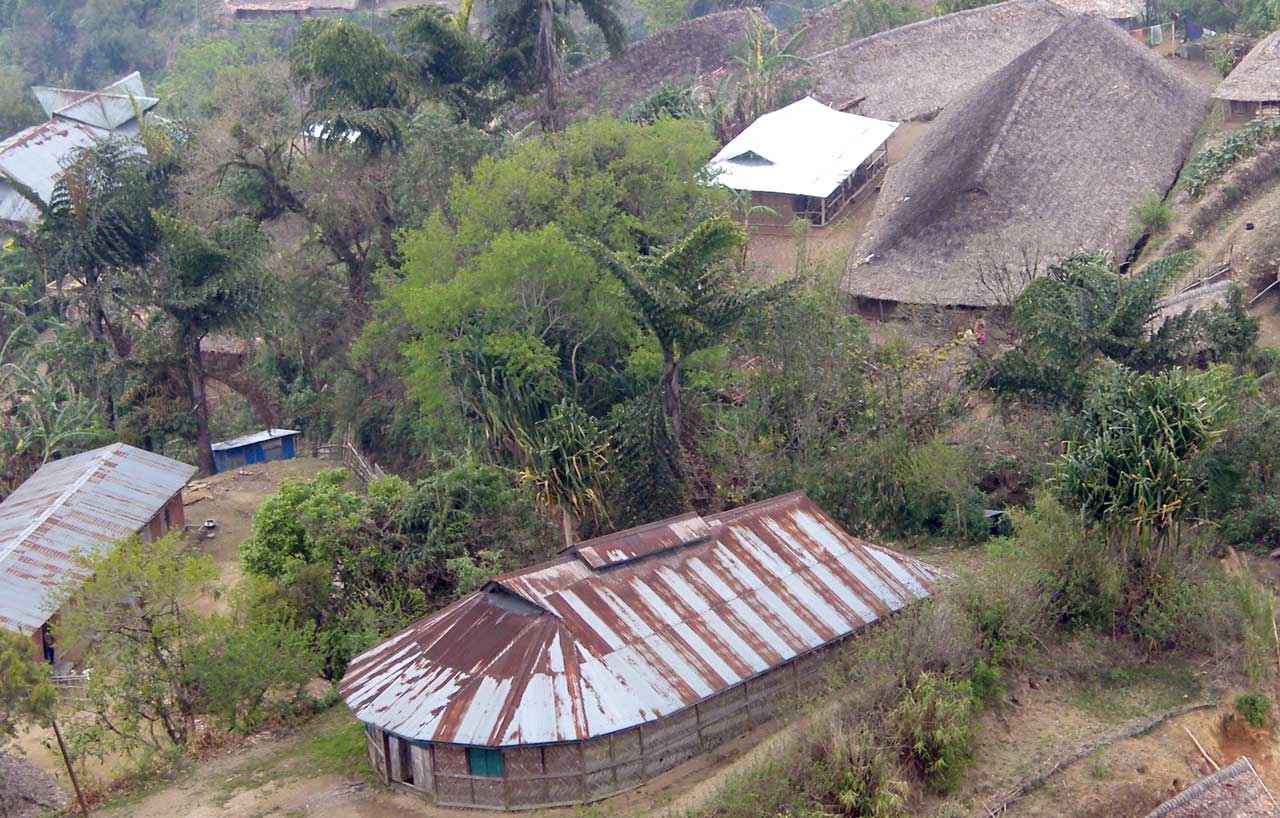
Twenty-eight years later the Chief Justice of the Manipur High Court noted in his order: “Despite several orders of this court in the recent times, it appears that the entire records could not be identified or located. There is no final or interim report of the District Judge, Imphal. Registrar (Judicial), informed the court that in spite of several enquiries, he is unable to identify any relevant file except pleadings.”
The final hearing was conducted before the bench of Justices Sailendu Nath Phukan and W.A. Shishak in March 1992. But the two judges did not deliver any order and were subsequently transferred to other high courts
Renu Takhellambam, president of the Extra Judicial Execution Victim Families Association Manipur (EEVFAM), an organisation that filed 1,528 fake encounter cases in the Supreme Court in 2012, says that the investigations and trials are still pending even after 10 years. A few of the cases were closed by the Court, allegedly due to lack of evidence. Takhellambam is sceptical about how effective AFSPA is in containing insurgency and reacts to its extension in Manipur by saying, “The government must conduct a six-monthly review.” She underlines that there have been no reports of substantial insurgent violence for a long time. Isolated incidents like the ambush carried out by the Manipuri insurgent group, People’s Liberation Army, in November last year near the Burma border in which seven security personnel were killed cannot be justification for continuation of AFSPA, she says.
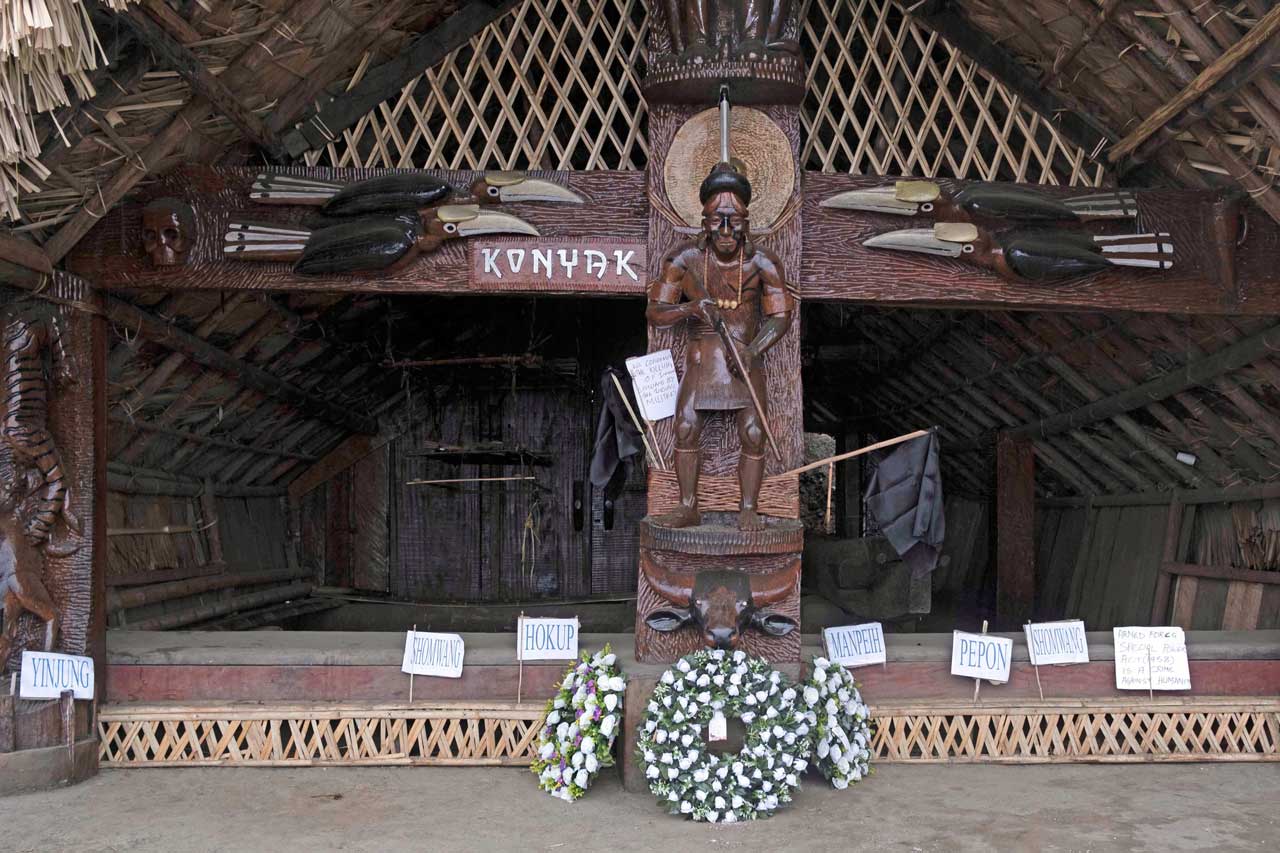
The existence of AFSPA in the Northeast is as old as the region itself. Many of the states were born after the Act came into force. The demand for its repeal has been going on for decades. Since it came into being in 1958, AFSPA was first imposed in the Naga hills, then in Assam, and eventually in Manipur, Mizoram and other states. More than 60 years have passed since AFSPA was enacted in September 1958.
In these past decades, the region has witnessed bloodshed and violence on a daily basis that has resulted in large-scale humanitarian disasters. Atrocities, brutality, fake encounters, and sexual assaults committed by the empowered security forces under AFSPA are well documented and have been reported over the years. On the other hand, AFSPA has been used as a rationale by the armed rebel groups to legitimise their existence and win public support.
Over the years, the Northeast has also witnessed tremendous transition, particularly in recent years. Insurgency-related violence has reduced considerably. Most of the armed militant groups in the region have suspended their operations and have come overground for resolving various issues through dialogue with the Centre and state governments.
One of the more prominent rebel groups, the NSCN and its factions are engaged in peace talks with the Centre. Meanwhile, other insurgent groups like the Kuki National Liberation Army and Manipuri outfits have ceased insurgency activities and are engaged in dialogue with the government. Similarly, in Assam the pro-talks faction of the United Liberation Front of Asom is engaged in negotiations and there has been considerable reduction in insurgent violence in the state for more than a decade. Mizoram has emerged as one of the most peaceful states in the Northeast after the Mizoram Peace Accord was signed in 1986.
The final hearing was conducted before the bench of Justices Sailendu Nath Phukan and W.A. Shishak in March 1992. But the
two judges did not deliver any order and were subsequently transferred to other high courts
The improvement in law and order in the Northeast is a popular public position that politicians from the region project, which is endorsed by the people from the troubled states and independent observers. Yet, the same politicians do not hesitate to extend AFSPA. This begs the question: Why does Delhi still consider imposing AFSPA as important? Why do the Northeast state governments still feel the region is “disturbed”?
In a recent interview, Army Chief General M.M. Naravane stated that a number of Army units involved in counter-insurgency duties have been disengaged from Manipur and Assam. He also said that this testifies to the improvement in the overall security situation in the Northeast. Terming the ambush of 46 AR in Manipur — resulting in the deaths of the CO, his family and four others on November 13 — as unfortunate, General Naravane said that one incident is not indicative of the deterioration of the overall situation in the region.
Given the mounting body of evidence against the continuation of AFSPA in the Northeast, the time has come to chuck it into the dustbin of history.
The writer is a freelance journalist based in Imphal

